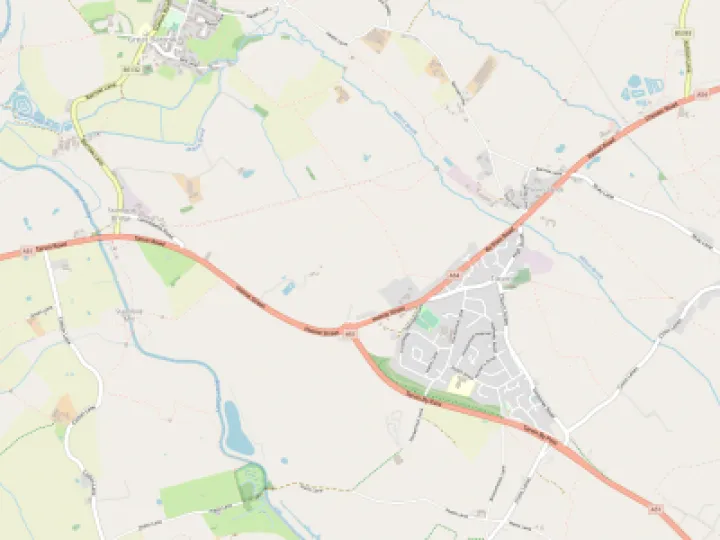Turn the clocks forward on Sunday 25th March 2018.

EVERY year the clocks fall back in October and spring forward again in March to mark the beginning and end of British Summer Time.
But while we try and remember to set alarms that hour earlier or enjoy some extra time in bed, inevitably someone always forgets.
In the UK the clocks go forward 1 hour at 1am on the last Sunday in March, and back 1 hour at 2am on the last Sunday in October.
The period when the clocks are 1 hour ahead is called British Summer Time (BST). The change heralds the coming of Spring by ensuring that there's more daylight in the evenings and less in the mornings. (sometimes called Daylight Saving Time).
When the clocks go back, the UK is on Greenwich Mean Time (GMT).
[Do I gain or lose an hour?
]
As the clocks go forward, the change to BST means you will sadly lose an hour of sleep.
Beware of your smartphone, because often it'll change the time automatically instead of requiring you do it manually.
[Why do we have the BST and DST?
]
Whether Daylight Saving Time is effective is the topic of much debate.
Despite trying other methods of clock-changing, such as double summer time (GMT + 2 hours) and a permanent British Summer Time (GMT + 1 hour), the current method has remained since 1972.
Supporters say it reduces traffic accidents in winter, saves energy boosts tourism and encourages more people to exercise outdoors.
The golf industry says one extra month of Daylight Saving time can generate up to £246.6 million a year in extra sales and fees.
Critics claim darker mornings are dangerous for children walking to school and say the energy saving argument is invalid if people use fans and air-conditioning in the warmer months.
A YouGov poll in 2011 found 53 per cent of Brits support moving clocks forward permanently, while 32 per cent oppose the change.
When permanent BST was trialled in northern Scotland from 1968 to 1971, a record number of people were killed or seriously injured.
What is Daylight Saving Time?
Daylight Saving Time (DST) was created by William Willett in 1907 in a bid to stop people wasting valuable hours of light in the summer months.
By setting the clocks back in winter, Brits get an earlier sunrise and earlier sunset. In summer the sun rises and sets one hour later than it would without DST.
Willett died of the flu in 1915 and Germany adopted his clock-changing plan on April 30 the following year.
Britain followed suit one month later on May 21, as World War One was underway.
The Summer Time Act of 1916 was passed by Parliament and the first day of British summer was reported as May 21, 1916.
The idea of summer time or daylight saving time was first suggested in a whimsical article by Benjamin Franklin in 1784, but it was first seriously proposed in in Britain in 1907 by a keen horse-rider, William Willett. Willett was incensed at the 'waste' of useful daylight first thing in the morning, during summer.
In a pamphlet called "The Waste of Daylight" Willett suggested clocks should be advanced by 80 minutes over four stages in April, and reversed the same way in September.
The year after Willett's death in 1915, the Germans adopted daylight saving time and not to be disadvantaged at a time of war, so did the UK within a few weeks. Summer time was first defined in an Act of Parliament in 1916 that stated for a certain period during the year legal time should be one hour in advance of GMT. From 1916 up to the Second World War, clocks were put in advance of GMT by one hour from the spring to the autumn.
Within a few years of its introduction, most countries reasonably north or south of the equator had adopted Daylight Saving Time. However, it has been controversial since the day it was first proposed.
[The Second World War, an exceptional time
]
During the Second World War, British Double Summer Time (two hours in advance of GMT) was temporarily introduced and was used for the period when, normally ordinary summer time would have been in force. During the winter, clocks were kept one hour in advance of GMT.
With the war over, Britain returned to British Summer Time as before except for a brief trial between 1968 and 1971 when the clocks went forward but did not go back. The trial was deemed unsuccessful and abandoned.
The duration of British Summer Time was changed in 1998 to bring the date of the start of summer time into line with that used in the rest of the European Community. According to an EU directive, summer (or daylight saving) time will be kept between the last Sunday in March to the last Sunday in October, all changes taking place at 01.00 GMT.
Is this on the BREXIT agenda I wonder?.
[Summer time all year round?
]
Campaigners have sought a return to British Double Summer Time or a permanent British Summer Time in order to save energy and to increase the time available for leisure in the evenings. An attempt was made by backbench MPs to change BST but The Daylight Saving Bill 2010-12 was not passed by the House of Commons.
Opponents pointed out that in the north this would have social disadvantages including for instance, the problem that in the far north-west of Scotland sunrise would occur at about 10.00 in the middle of winter and over much of the north small children would have to travel to and from school in darkness
{[And you thought it was just straightforward!.
We are quite good in the UK at marching up the hill/staying there/coming halfway down than reaching the bottom again.
]}
Quick Links
Get In Touch
TarvinOnline is powered by our active community.
Please send us your news and views.







